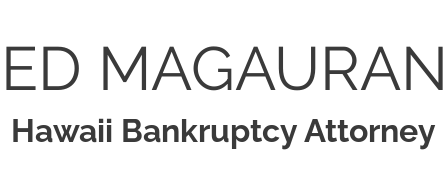Bankruptcy and co-signed debt
Money regrets. Who doesn’t have them? Among the poor and even among the rich, not to mention everyone in between, you’ll find that each person has more than a few. Some can be remedied.
One of the deepest and most frequently expressed money regrets we encounter in our practice has to do with co-signing loans. These statements of money regret come from both the “principal” borrowers and the co-signers who have lent them their good name and credit history.Maybe you were the “principal” borrower who was too young to have established credit, or maybe you were already starting your descent in the debt spiral and needed help to qualify for a car loan to help you get to work, or a student loan to help you better your earning capacity, or a personal loan to help you try to consolidate your unwieldy debt. A trusting and creditworthy friend or relative was willing to come to your aid by affixing his or her signature on the promise to pay the creditor back. Now life has handed you setbacks in employment or health, and you cannot make good on all your financial commitments, no matter how hard you try. You’ve learned that bankruptcy will let you dump most or all of your debts, but you wonder, “What will happen to that loan my mother/brother/best friend co-signed for me?”First of all, cast aside all popular misconception and wishful thinking. Co-signing a loan does not mean that the co-signer is only a borrower “on paper” and does not really have to pay for the loan if they never received the proceeds or got to drive the car that was purchased with the loan. In most states, including Hawaii, the creditor does not have to pursue the primary borrower before pursuing the co-signer if payments are missed. And the co-signer is not just “50 percent responsible” for the balance owed on the loan. Under the vast majority of loan contracts where there is a co-signer, each party signing is responsible for the entire loan balance. In Hawaii, if the primary borrower defaults, the co-signer can be sued for the entire balance owing and his or her wages can be garnished or his or her real estate liened upon to satisfy a judgment in the creditor’s favor.
There is good news, however. If you are unable to meet all of your financial commitments, Chapter 13 of the Bankruptcy Code will allow you to make good on that commitment to your co-borrower while paying what is often a very small dividend (pennies on the dollar) on your remaining debt. The Bankruptcy Code generally provides that all general unsecured creditors – those without collateral or special “priority” such as tax or child support creditors – must be treated equally. But the Code provides an exception for co-signed obligations for consumer debts. Those can be paid in full over three to five years through a Chapter 13 payment plan, while other creditors receive a usually much smaller dividend (again, pennies on the dollar in most cases). What’s more, co-signers on consumer debts are protected from any act to collect on the debt if a Chapter 13 payment plan that is complied with provides for full payment of the loan obligation and the person in bankruptcy is the one who benefited from the loan.The protections for co-signers and favorable treatment for co-signed loans do not apply in Chapter 7 bankruptcy cases. In a Chapter 7 case, the person filing the case can have his or her liability on a loan discharged in full, but the co-signer will remain liable for 100 percent of the balance owing and will not be protected from the co-debtor stay that applies in Chapter 13. When a primary borrower has dumped his or her co-signed debt in a Chapter 7 case, sometimes it becomes necessary for the co-signer to file his or her own bankruptcy case if the loan is for an unmanageable amount.Our advice: Think hard, very hard, about co-signing a loan or asking a friend or relative to be a co-signer. But if transaction has already happened and gone sour, know that the Bankruptcy Code offers protection and a way out to both the primary borrower and co-signer.
Don’t go it alone— Get the advice you need!
Call us today at 808-585-1000 for a free no obligation consultation.
Dump the debt and get a fresh start.
We file bankruptcies on all the Hawaiian Islands, Oahu, Big Island, Maui and Kauai. Find out what we can do for you today!


